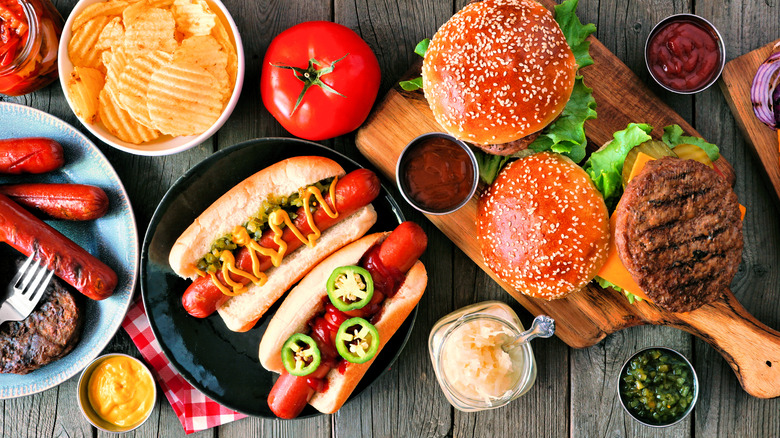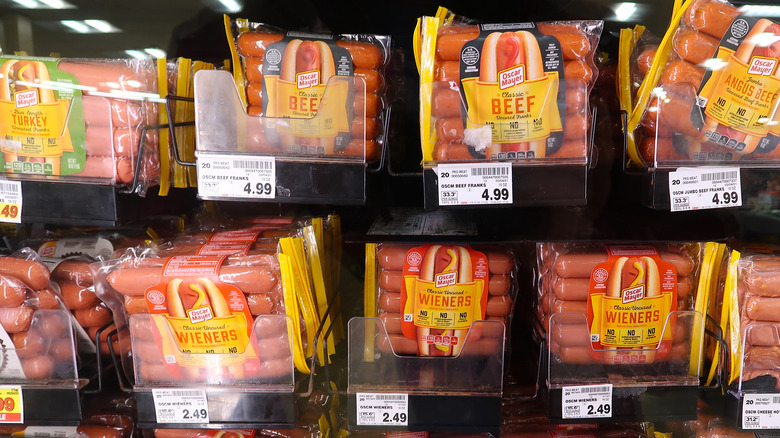Why Hot Dogs And Burgers Are About To Get A Lot More Expensive
If you prepared a lot of meals at home this year, you undoubtedly noticed that 2021 has not been an entirely friendly year for grocery store budgets. Back in March, we received the bad news that food prices would continue to rise, according to The New York Times, due to the double-punch of climate change-inducing winter storms (like the ones that spelled bad news for crops in Texas last winter) and the onset of COVID-19 causing production issues (per NBC News). And one food category in particular that saw a jump in price was meat.
The increase in the cost of meat didn't go unnoticed by Costco shoppers, who have been vocal on social media about the spike in sticker prices at the discount store's locations. One strategy such grocery store goers may have used to save money this year was sticking to cheaper cuts of meat like deli slices, hamburgers, and hot dogs. But, consumers of lesser costing meats are in for some bad news as well. These products are about to get even more expensive, according to CNN. So, what's causing the irksome price increase? It may not be too long before you find yourself questioning just how badly you want that burger...
Inflation is wreaking havoc on hot dog and burger prices
Saving money at the grocery store may no longer be a walk in the park when it comes to buying Ball Park hot dogs. According to CNN, some major food companies have informed their customers they will be ringing in 2022 with a price increase on some frozen and refrigerated meats. Tyson spelled out the specifics in a letter to a couple of its regional distributors, according to the news outlet, explaining that deli meats in addition to Ball Park, Hillshire Farm, Jimmy Dean, and State Fair products will begin increasing on January 2 to the tune of 5 to 10.2%. (Happy New Year!) Conagra also reportedly alerted one of its distributors that they will be increasing prices for Hebrew National hot dog packages in January, ranging from 10.9% to 12.6%, and Kraft Heinz told its customers they could look forward to around an 8% increase in the pricing of some of its Oscar Mayer line. Yikes.
The surge in pricing can be chalked up to that ugly word (that is surprisingly longer than four letters): inflation. In their letter to retailers, according to CNN, Tyson wrote that they were up against "accelerating levels of extraordinary inflation." As a result, "restaurants and food manufacturers usually respond to inflation by shrinking their products, like making smaller hamburgers without lowering prices," finance professor Paul Chiou told Northeastern University. CNN also points out that meat producers like Tyson are trying to counter the higher costs the companies are incurring on commodities, packaging, labor, and transportation.

